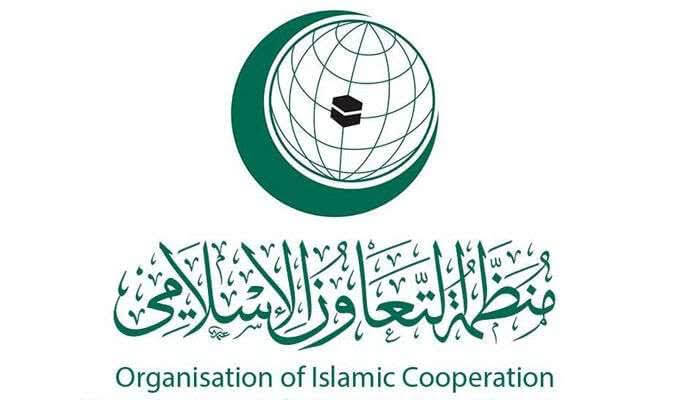India seems to have conceded a great diplomatic victory to Pakistan on November 29 when it reacted officially to a routine reference of Kashmir in the just-concluded 47th session of the Council of Foreign Ministers (CFM) of the Organisation of Islamic Cooperation (OIC) in its meeting on November 27-29 at Niamey, Niger.
The routine reference in the OIC meeting, which did not even merit any attention in the Arab World, to which the most resourceful OIC members belong, was only a face-saver for Pakistan.

Because, the Kashmir issue was not in the official agenda of the meet, which the opposition parties, as well as the Pakistani media, had termed to be a huge diplomatic failure of the Imran Khan-led government just on the eve of Pakistani foreign minister Shah Mahmood Qureshi’s visit to Niger.
A quick glance at the online editions of newspapers from the Middle East makes it apparent that the OIC meet referring to Kashmir was not even newsworthy for them.
But what Pakistan did not gain in Niger was offered to it on a platter by India when the spokesperson of its Ministry of External Affairs on Sunday accused the OIC of making “factually incorrect and unwarranted” references to Jammu and Kashmir in resolutions adopted by the grouping and asserted that the union territory is an integral and inalienable part of the country.
And what was worse, the spokesperson advised the OIC to refrain from making such references in the future and said it was regrettable that “the grouping continues to allow itself to be used by a certain country which has an abominable record on religious tolerance, radicalism and persecution of minorities” in a clear reference to Pakistan.
Late Indian Prime Minister Narasimha Rao had once said that remaining silent sometimes on some issues was a well-considered feature of the statecraft. Obviously, the MEA under Narendra Modi does not seem to believe in this dictum.
In the process, however, the Modi government does not realize that it has weakened its policy-stance towards Pakistan and it has unnecessarily annoyed some of the important OIC members with which India’s bilateral relations have warmed up a great deal in the last five years.
Pakistan talking of Kashmir, which it does day in, day out, is no news for the world community. But when India defends its position on Kashmir in reaction to what Pakistan says, it draws headlines. In that sense, by reacting to what Pakistan did at the OIC meeting, India obviously fell into the trap set by Pakistan.
This was all the more surprising given the fact that in its regional diplomacy, India has virtually succeeded in isolating or ignoring Pakistan. It has ensured that Pakistan does not host any meeting of the SAARC.
In other developmental and connectivity projects in South Asia, India under Modi has bypassed Pakistan. Even bilaterally, it does not maintain a full-strength diplomatic mission, which is half of its normal strength and manned by junior officers. Viewed thus, if you have tried to make Pakistan irrelevant in your diplomatic framework, it is a sheer contradiction when you criticize the OIC for being influenced by Pakistan.
The MEA spokesperson’s remark on the OIC was all the more unfortunate because its leading members like Saudi Arabia, the United Aran Emirates, and Iran, particularly the first two, have completely ignored Pakistan’s objections and have developed very strong relations with Modi at a personal level and India in economic terms general. Saudi Arabia and the UAE are the big prospective investors in India, not to speak of the millions of Indians being employed in these two Gulf nations.
Notably, on March 1, 2019, Pakistan was given its biggest diplomatic jolt by none other than the UAE when it invited the then-Minister of External Affairs Sushma Swaraj to deliver the plenary address at the Council of Foreign Ministers of the OIC, held in Dubai as the ‘Guest of Honour’.
“We see this invitation as a milestone in our comprehensive strategic partnership with the UAE. We also see this invitation as a welcome recognition of the presence of 185 million Muslims in India and of their contribution to its pluralistic ethos, and of India’s contribution to the Islamic world,” India had said in a statement accepting UAE Foreign Minister Sheikh Abdullah bin Zayed Al Nahyan’s invitation.
It is equally important that only two months back Pakistan had failed to place its rhetoric on Kashmir among its “key allies” after Saudi Arabia and Iran refused permission to Pakistan’s missions in their country for holding public events to observe 27th October as a Black Day.
It is a fact that privately diplomats of many OIC countries lament that despite India having the second largest Muslim-population in the world, it is not made a member of the organization because of Pakistan’s objection. But at the same time, they also admit that the OIC, which was founded in 1969 with 25 members but now expanded to have 57 countries, is nothing but a sort of club, where ministers and heads of government meet regularly to talk without real commitments. Its resolutions are non-binding.
A reading of the OIC website makes it obvious that “liberation of Kashmir” is not even one of its objectives in its planned road-map by 2025. In its state 18- “priority areas”, the number one happens to be the resolution of the Palestine issue, the rest being tackling terrorism and violent extremism, promoting moderation and inter-faith harmony, working for environmental protection and poverty alleviation, and so on. Kashmir is not mentioned as a priority area for the OIC.
Against this background, the MEA spokesperson lambasting the OIC is nothing but causing a self-inflicted wound for India.